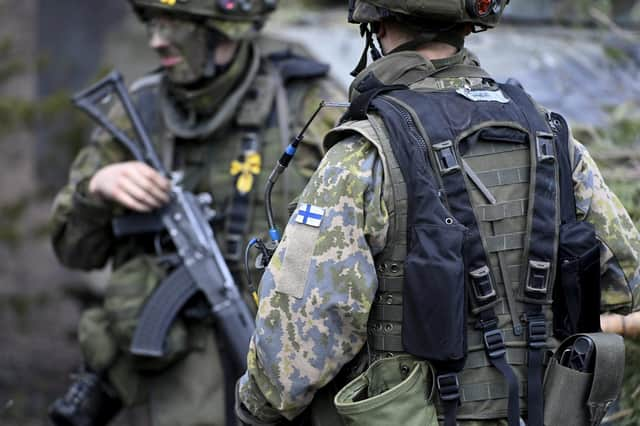Nordic Response 2024: Nato must not sleepwalk into a war with Vladimir Putin's Russia. We must be ready – Scotsman comment


“We need to be able to fight back and stop anyone who tries to challenge our borders, values and democracy.” So said Brigadier Tron Strand of the Royal Norwegian Air Force, as a major military exercise involving 20,000 soldiers, 50 naval vessels, and more than 100 aircraft from 15 different countries – including the UK, new Nato member Finland and soon-to-be member Sweden – got underway in Scandinavia.
Once such manoeuvres would pass by with little public comment, but the threat posed by Vladimir Putin means they deserve much more than our passing interest. The failure of the much bigger Russian army to take Ukraine within a few weeks surprised many military commentators, but it would be a serious mistake to believe this shows that there is no danger to the rest of Europe. Instead, its struggles should be a warning to Nato that armies on paper may look good, but might not be as impressive when the fighting starts.
Advertisement
Hide AdAdvertisement
Hide AdExercises such as Nordic Response 2024, due to run until mid-March, are vital in helping to ensure that the sum of Nato’s parts proves to be effective when required to operate as a whole. European countries tend to want to each have the full spread of armed forces which means there is much duplication of capabilities, not to mention bureaucracy, which is a problem for the alliance.
Specifically European capabilities have become all the more important because of the threat that Donald Trump could take the US out of Nato if he wins the presidential election in November. For years, US military might has provided the bulk of Nato’s strength; without it, Europe might struggle to stand up to Putin, particularly as only the UK and France possess nuclear weapons.
The historian Christopher Clark, in his book The Sleepwalkers: How Europe Went to War in 1914, notes that there were just 37 days between the assassination of Archduke Franz Ferdinand and his wife Sophie and the outbreak of an unexpected, global conflict. The speed with which such catastrophes can evolve is a warning from history we cannot ignore. We must be ready.
Comments
Want to join the conversation? Please or to comment on this article.
